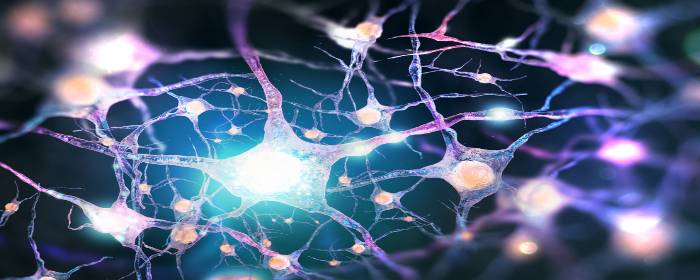
by admin | Oct 24, 2018 | Health Awareness, ALS, Multiple Sclerosis
Amyotrophic lateral sclerosis (ALS, also known as Lou Gehrig’s disease) and multiple sclerosis (MS) are similar in that they are both neurodegenerative disorders which impact the brain and central nervous system. Neither condition has a known cure, and both affect the muscles and nerves. Yet, the conditions have distinct difference between MS and ALS, particularly in terms of their symptoms. Here, we explore the ways in which these conditions are similar and then examine their distinctive qualities.
Similarities
Muscle Weakness: Weakness in the muscles of the arms and legs are common in both ALS and MS, as are difficulty walking and involuntary muscle spasms.
Speech Challenges: Slurred speech, while less common in MS, can be experienced by patients with both conditions. In ALS, this symptom worsens progressively, but it can be intermittent in people with MS.
Swallowing Problems: Dysphagia, or difficulty swallowing, is a symptom shared by both conditions. However, while it becomes progressively worse in patients with ALS, individuals with MS experience it to a lesser degree and intermittently.
Breathing Issues: ALS is characterized by the breaking down of the nerve cells in the brain and spinal cord, which control the muscles in your body. Thus, as muscles begin to atrophy, breathing complications become more pronounced. In people with MS, lung function is lower than normal, but shortness of breath is typically only noticed upon exertion, if at all.
Differences
Both ALS and MS scar the covering of the nerve fibers, but this happens differently in each condition. In MS, the myelin sheaths, coverings which protect the body’s nerve cells, are compromised. This impedes the brain’s ability to send signals to other parts of the body, which affects both voluntary and involuntary muscle movement. The symptoms of ALS, on the other hand, all involve nerves that control voluntary muscle movement.
The early stages of ALS vs MS Symptoms bear similarities to one another, like fatigue, trouble walking, muscle stiffness, and twitching are common in both. Yet, physicians are able to distinguish among the two fairly quickly, due to the following distinct symptoms.
Vision Impairment: While ALS sufferers may notice challenges with voluntary muscle movement, they often do not lose the ability to see. For MS patients, however, the optic nerve can become swollen, resulting in vision problems. In fact, up to 80% of all MS patients experience vision-related symptoms.
Bladder/Bowel Issues: Issues with involuntary muscles can present bladder challenges, including incontinence, in at least 80% of people with MS. Diarrhea is also common for MS sufferers. People with ALS may not experience either condition, but constipation is common in both illnesses.
Tingling/Pain: A select population of ALS patients experience tingling, but it is often temporary. For people with MS, however, sensory symptoms are common and pronounced. Numbness, tingling, and pain are reported by MS patients.
While the symptoms described above are commonly associated with ALS, MS, or both, having one or more of these symptoms does not mean a patient is afflicted with either condition. With that being said, it is always a good idea to have a physician weigh in on any new or unfamiliar symptoms to receive an accurate diagnosis and treatment plan.

by admin | Sep 20, 2018 | Health Awareness
Avocados have long been hailed as a food source rich in vital nutrients. Not only is it loaded with almost 20 vitamins, minerals, and phytonutrients, but it also has just 80 calories per serving. Yet, aside from its “superfood” status, could this unique stone fruit hold even more power to boost wellness? Research seems to suggest so.
Phytochemicals in Avocado
According to an article in Advances in Neurobiology, avocados’ high concentration of phytochemicals could play “a pivotal role in the prevention and cure of various neurodegenerative diseases.” Phytochemicals are biologically active compounds found naturally in plant sources, many of which have antioxidants and free radical scavenging effects. Research has also pointed to their ability to improve the functionality of the endothelium or the cells that line the interior of blood vessels. With a host of beneficial properties, they are shown to reduce risks for non-neurodegenerative diseases as well, including cancer, inflammatory conditions, and type 2 diabetes.
How Phytochemicals Benefit Neurodegenerative Diseases
What researchers are now discovering is that in addition to reducing inflammation and attacking free radicals, these phytochemicals also seem to specifically exhibit neuroprotective effects. Overproduction of free radicals can lead to oxidative damage to important biomolecules such as DNA and proteins, which eventually lead to the development of degenerative diseases. Reactive oxygen species resulting from free radical damage can also become active in the brain and neuronal tissue, leading to oxidative stress. Researchers have determined that oxidative stress is a causative agent behind the development of neuronal damage, which is present in neurodegenerative diseases such as Huntington’s disease, Parkinson’s disease, amyotrophic lateral sclerosis (ALS), and Alzheimer’s disease. Interestingly, studies show that the antioxidants found in avocados are unique, and have been shown to reduce neuronal death.
To maximize the benefits of avocados, the Food and Drug Administration (FDA) updated its daily recommended serving to 1/3 of a medium-sized fruit in 2016. This allows consumers to reap significant nutritional benefits from the antioxidative properties of Vitamin C, vitamin E, and other components without ingesting too many calories from fats. The creamy, fiber-rich fruit is often served atop salads, toast, and even enjoyed raw.

by admin | Aug 1, 2018 | Health Awareness
Melatonin has long been hailed for its health benefits, and the more researchers study the hormone, the more its broad range of abilities is revealed. Known as “the sleep hormone,” the power of melatonin goes far beyond simply regulating sleep patterns. Scientists believe it could also play a role in managing chronic conditions like heart disease and diabetes, and that it may even promote bone health and reduce obesity. Most recently, it has been discovered that melatonin could help safeguard genetic material and protect against age-related disease and health decline. Here, we take a closer look at how the hormone works to boost wellness.
A Disease-Fighting Hormone
Free radicals are chemically reactive molecules which are linked to a host of diseases, including Parkinson’s disease, Alzheimer’s disease, and cancer. We encounter them on a daily basis, as they are found in everything from the air we breathe to medications and foods. Reducing the volume of free radicals in the body is therefore critical to preventing and managing diseases. One of the ways the body fights off free radicals is through antioxidants, the substances that counteract them.
According to research, melatonin is a potent agent in antioxidative defense. It can enter any bodily fluid or cell and actively scavenge free radicals, and it also has the ability to influence circulation. In addition to fighting free radicals, melatonin can reduce the generation of these dangerous molecules and simultaneously protect critical functions of the cells.
Research also suggests that melatonin’s ability to prevent oxidative damage, specifically in brain cells, make the substance a prime candidate for treating conditions such as Alzheimer’s disease, amyotrophic lateral sclerosis (ALS), Huntington’s disease, stroke, and brain trauma.
Where is Melatonin Found?
Melatonin was first discovered as a hormone of the pineal gland, but it is also produced elsewhere in the body. Specifically, the gastrointestinal (GI) tract is a rich source of the hormone, with its tissues holding 10-100 times as much of the hormone than the blood. The GI tract also has at least 400 times more melatonin than the pineal gland.
Certain types of food are also natural sources of melatonin, including ginger, rice, bananas, barley, sweet corn, and Morello cherries. Additionally, over-the-counter melatonin supplements are available, but it is recommended that anyone considering a supplement regimen consult their doctor. Certain individuals, including women who are pregnant or breastfeeding, may not be advised to take the supplement.




 St. Petersburg, Florida
St. Petersburg, Florida
